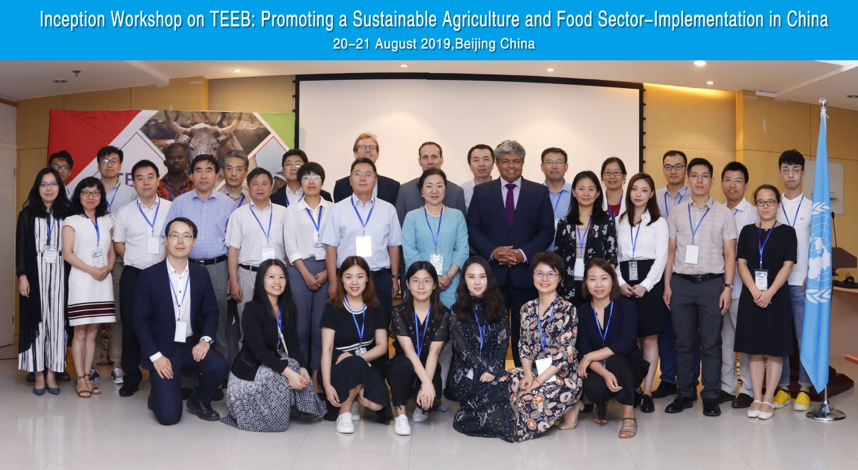The current agriculture and food system entails substantial cost on the environment, society and human health along its complex and extensive values chains. It is crucial to figure out how to feed and nourish billions of people in an equitable manner without seriously damaging ecological security or environmental sustainability. Unfortunately, existing prevalent metrics for agri-food performance rarely captured this reality and thus were not able to bring the challenges sharply into the policy makers’ focus. TEEB for Agriculture and Food (TEEBAgriFood) seeks to measure what really matters in the agri-food sector by emphasizing the holistic evaluation of agri-food systems along their values chains and including their most significant externalities.
The core project goal is to stimulate biodiversity conservation and ecosystem service provisioning for agricultural landscapes in China, by contributing to a more sustainable agriculture and food sector.
The project links TEEB’s advocacy Mainstreaming the Value of Nature to one important development concept in China Green is Gold under the Ecological Civilization approach that the country has been implementing and promoting. The selected focal area of the project Tengchong City, Yunnan Province was one of the practice innovation bases of Green is Gold concept in the country, nominated by the Ministry of Ecology and Environment of China. The project will simulate different development paths with regard to Tengchong’s agriculture and food sector in a timeframe toward 2050, assess respective impacts over natural, human, social and built capitals by applying TEEBAgriFood evaluation framework, and to generate uptake of policy recommendations.
TEEBAgriFood’s implementation in China is funded by the EU-Partnership Instrument through UNEP. UNEP-IEMP is the host institution of implementation, while Chinese Research Academy of Environmental Sciences (CRAES) of Ministry of Ecology and Environment is the political focal point. The project seeks to recognize, demonstrate and then capture the values of ecosystems and biodiversity in both monetary and non-monetary terms in the agri-food sector so as to inform human activities justified by economic viability and environmental and social sustainability.
For more information, please refer to

Related Content
TEEBAgriFood Regional Symposium Asia Pacific held successfully online on 26 March 2021